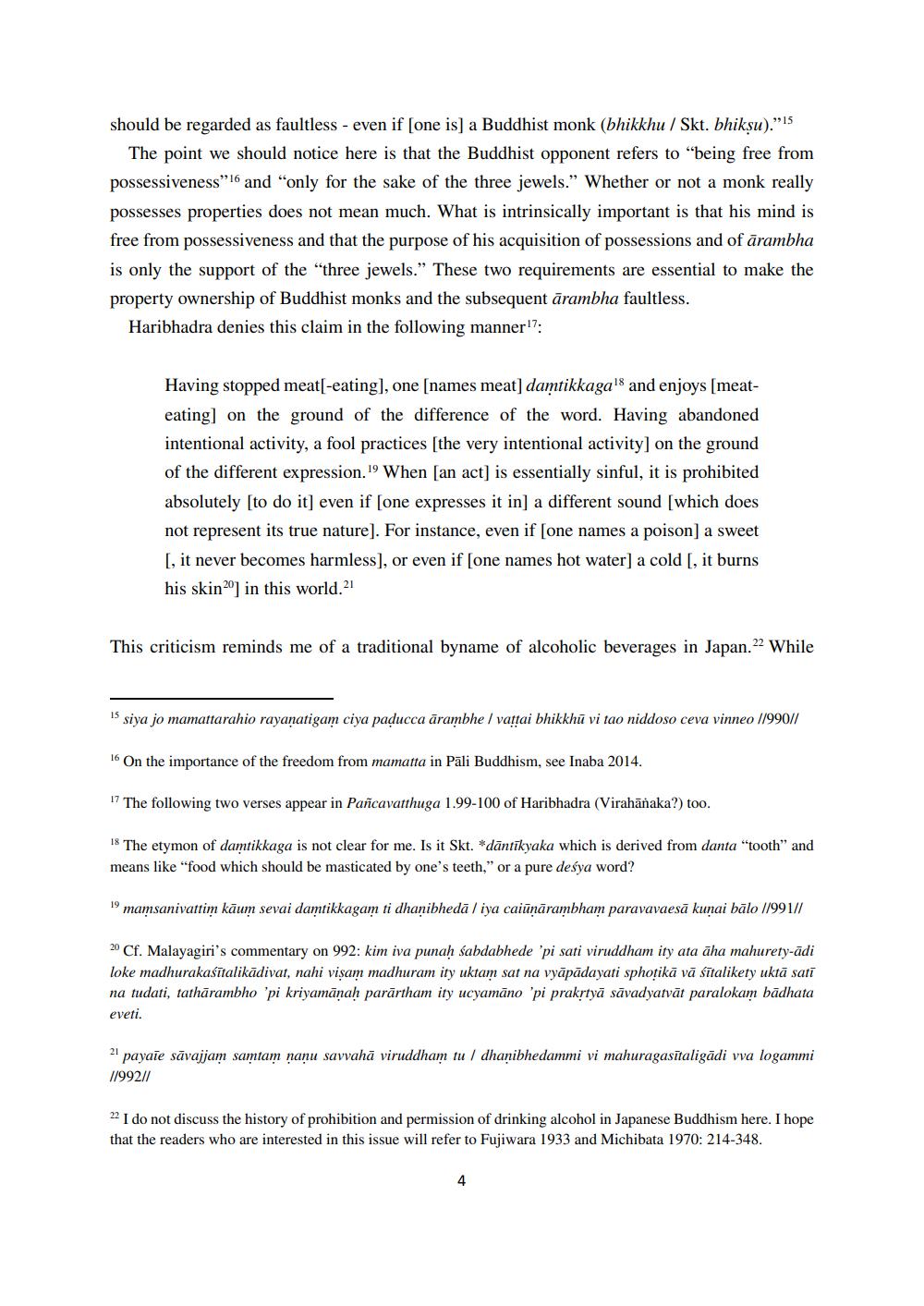________________
should be regarded as faultless - even if [one is) a Buddhist monk (bhikkhu / Skt. bhikṣu)."15
The point we should notice here is that the Buddhist opponent refers to "being free from possessiveness”!6 and "only for the sake of the three jewels." Whether or not a monk really possesses properties does not mean much. What is intrinsically important is that his mind is free from possessiveness and that the purpose of his acquisition of possessions and of ārambha is only the support of the three jewels." These two requirements are essential to make the property ownership of Buddhist monks and the subsequent ārambha faultless.
Haribhadra denies this claim in the following manner.7:
Having stopped meat[-eating), one [names meat] damtikkagals and enjoys (meateating on the ground of the difference of the word. Having abandoned intentional activity, a fool practices (the very intentional activity] on the ground of the different expression. When [an act] is essentially sinful, it is prohibited absolutely [to do it even if [one expresses it in a different sound [which does not represent its true nature]. For instance, even if [one names a poison) a sweet [, it never becomes harmless], or even if [one names hot water] a cold [, it burns his skin20] in this world.21
This criticism reminds me of a traditional byname of alcoholic beverages in Japan.22 While
15 siya jo mamattarahio rayanatigam ciya paducca ārambhe/vattai bhikkhū vi tao niddoso ceva vinneo //990//
16 On the importance of the freedom from mamatta in Pāli Buddhism, see Inaba 2014.
17 The following two verses appear in Pancavatthuga 1.99-100 of Haribhadra (Virahānaka?) too.
18 The etymon of damtikkaga is not clear for me. Is it Skt. *dāntīkyaka which is derived from danta "tooth” and means like "food which should be masticated by one's teeth," or a pure desya word?
19 mamsanivattim kāum sevai damtikkagam ti dhanibhedā/ iya caiūnārambham paravavaesā kunai bālo 1/991//
20 Cf. Malayagiri's commentary on 992: kim iva punah sabdabhede 'pi sati viruddham ity ata āha mahurety-ādi loke madhurakasītalikādivat, nahi visam madhuram ity uktam sat na vyāpādayati sphotikā vā Sītalikety uktā sati na tudati, tathārambho 'pi kriyamanah parārtham ity ucyamāno 'pi prakrtyā sāvadyatvāt paralokam bādhata eveti.
21 payale sāvajjam samtam naņu savvahā viruddham tu / dhanibhedammi vi mahuragasītaligādi vva logammi //99211
22 I do not discuss the history of prohibition and permission of drinking alcohol in Japanese Buddhism here. I hope that the readers who are interested in this issue will refer to Fujiwara 1933 and Michibata 1970: 214-348.




